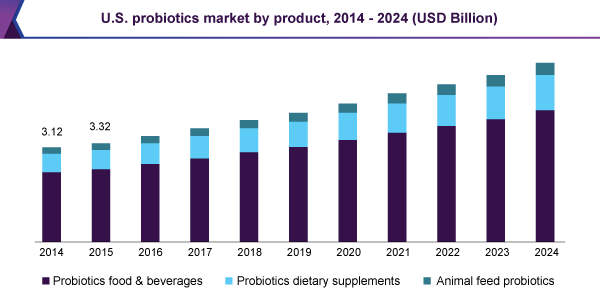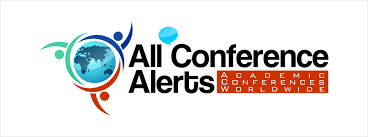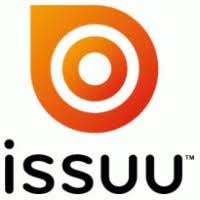With the enormous response from the previous International Conference on Microbiome R&D and Biostimulants (Microbiome R&D 2018), Conference Series LLC LTD invites all the participants from all over the world to attend “2nd International Conference on Microbiome, Probiotics & Biostimulants” during December 06-07, 2019 in Vancouver, Canada which includes prompt keynote presentations, Oral talks, Poster presentations and Exhibitions. The theme of the conference is “Current Research on Microbiomes, probiotics and Biostimulants” The conference focus on major tracks as Human Microbiota, Prebiotics and Probiotics, Biostimulants and Biocontrol strategies, Gut Microbiota, Plant-growth promoting bacteria, Pediatric Microbiome, Bioinformatics for Microbiome, Microbiome in Epigentics & Epigenome etc. The scientific programme of the conference is broad and embraces different research aspects with focus on applied and advanced probiotics, and in particular with a microbiology and infectious diseases.
|
Conference Name
|
Place
|
Date
|
|
Microbiome 2019
|
Vancouver, Canada
|
December 06-07, 2019
|
Why to Attend?
Microbiome 2019 Conference is a multidisciplinary program with broad participation with members from around the globe focused on learning about microbiology research and its advances. This is your best opportunity to reach the largest assemblage of participants from microbiology community that is from academia, microbiology entities, medical groups, labs, related associations, societies and also from government agencies, pharmaceutical, biomedical and medical device industries. This conference conduct presentations, distribute information, meet with current and potential scientists, make a splash with new clinical research developments, and receive name recognition at this 2-days event. World-renowned speakers and the most recent techniques, developments, the newest updates in Microbiome are hallmarks of this conference.
Who Should Attend?
Directors/Senior Directors/Executive Directors and Vice Presidents/Senior Vice Presidents/Executive Vice Presidents and Heads/Leaders/Partners of
-
Microbiology Research Sites
-
Pathologists and Immunologists
-
Research Scientists
-
Pharma/Biotech and Medical Device industries
-
Hospitals, Labs & Associations
-
Horticulture specialists
-
Farm technicians
-
Hydroponics Growers
-
Environmental specialists
Medical Directors, Principal Investigators, Methodologists, and other clinical research professionals along with Academicians: University Faculties like Directors, Senior Professors/Assistant Professors/ Associate Professor, Research Scholars, investors, scientists who are related to Microbiome. Pathologists, Doctors, Director and Managers from business organizations.
Benefits of attending Microbiome Conference?
-
An opportunity to meet the mentors across the world.
-
To share the knowledge with doctors and Scientists.
-
B2B Meetings.
-
Meet the experts in the field of Microbiome.
-
To gain advanced knowledge in Microbiome.
-
To meet investors from a different sector of Healthcare.
-
To develop collaborations between Academic and Business.
Track 1: Microbiome
A microbiota is an "ecological community of commensal, symbiotic and pathogenic microorganisms found in and on all multicellular organisms studied to date from plants to animals. A microbiota includes bacteria, archaea, protists, fungi and viruses. Microbiota have been found to be crucial for immunologic, hormonal and metabolic homeostasis of their host.
The human microbiome may play a role in the activation of toll-like receptors in the intestines, a type of pattern recognition receptor host cells use to recognize dangers and repair damage. Pathogens can influence this coexistence leading to immune dysregulation including and susceptibility to diseases, mechanisms of inflammation, immune tolerance, and autoimmune diseases.
Track 2: Human Microbiota
The human microbiome refers specifically to the collective genomes of resident microorganisms. The skin and mucous membranes always harbor a variety of microorganisms that can be arranged into two groups: (1) the resident microbiota consists of relatively fixed types of microorganisms regularly found in a given area at a given age; if disturbed, it promptly reestablishes itself; and (2) the transient microbiota consists of nonpathogenic or potentially pathogenic microorganisms that inhabit the skin or mucous membranes for hours, days, or weeks. The transient microbiota is derived from the environment, does not produce disease.
Track 3: Prebiotics and Probiotics
Prebiotics and probiotics both support the body in building and maintaining a healthy colony of bacteria and other microorganisms, which supports the gut and aids digestion. These food components help promote beneficial bacteria by providing food and creating an environment where microorganisms can flourish. Prebiotics are present in fiber-rich foods, such as fruits, vegetables, and whole grains. Probiotics occur in many fermented foods, including yogurt, sauerkraut, and tempeh.
Gut flora, or gut microbiota, or gastrointestinal microbiota, is the complex community of microorganisms that live in the digestive tracts of humans and animals, including insects. The gut metagenome is the aggregate of all the genomes of gut microbiota. The relationship between some gut flora and humans is not merely commensal (a non-harmful coexistence), but rather a mutualistic relationship. An enterotype is a classification of living organisms based on its bacteriological ecosystem in the human gut microbiome. The gut microbiota plays a key role in digestion, metabolism and immune function, and has a widespread impact beyond the gastrointestinal tract. Changes in the biodiversity of the gut microbiota are associated with far-reaching consequences on host health and development. Diet, functional foods, and gut microbiota transplantation are areas that have yielded some therapeutic success in modulating the gut microbiota and warrant further investigation of their effects on various disease states.
The four dominant bacterial phyla in the human gut are:
-
Firmicutes
-
Bacteroidetes
-
Actinobacteria
-
Proteobacteria
Track 5: Host-Microbe Biology (HMB)
Host-Microbe interactions are the collaborations occurring between a pathogen (e.g. infection, microscopic organisms) and their host (e.g. people, plants). The host-pathogen interface presents intriguing cell changes perceptible under electron microscope - occurrence to the pathogens for upgraded harmfulness, including arrangement of surface "invasosomal" periplasmic organelles and exocytosis of bacterial external film vesicles by gram-negative pathogens. Host cell cytoskeletal reorganizational changes e.g., unsettle development, adjusted phagocytosis; and so on additionally occur as a prelude to microbial attack.
Host-Microbe Biology includes
-
Genetic and Physiological Adaptation to the Host
-
Host Response to Microbes
-
Cellular/Molecular Host-Microbe Interactions
-
Invasion and Survival in Host Cells
-
Manipulations of Host Functions by Microbes
-
Microbe-Plant Interactions
-
Microbiome-Host Interactions
-
Phage-Host Interactions
-
Sepsis and Inflammation
-
Surface Structures of Pathogenic Microbes
-
Toxins and Secreted Factors
-
Virulence Regulatory Mechanisms
-
Virus-Host Interactions
-
Microbial Metabolism and Host Association
-
Anti-pathogen Strategies
Plant growth-promoting bacteria (PGPB) occupy the rhizosphere of many plant species and have beneficial effects on the host plant. They may influence the plant in a direct or indirect manner. A direct mechanism would be to increase plant growth by supplying the plant with nutrients and hormones; Indirect mechanisms on the otherhand, include, reduced susceptibility to diseases, and activating a form of defense referred to as induced systematic resistance. Soil microorganisms are the most abundant of all the biota in soil and responsible for driving nutrient and organic matter cycling, soil fertility, soil restoration, plant health and ecosystem primary production. Beneficial microorganisms include those that create symbiotic associations with plant roots like rhizobia, mycorrhizal fungi, actinomycetes, diazotrophic bacteria, promote nutrient mineralization and availability, produce plant growth hormones, and are antagonists of plant pests, parasites or diseases. Many of these organisms are already naturally present in the soil, although in some situations it may be beneficial to increase their populations by either inoculation or by applying various agricultural management techniques that enhance their abundance and activity.
MARKET ANALYSIS:
According to the report, global human microbiome market was valued at approximately USD 721.63 million in 2017 and is expected to generate revenue of around USD 1,365.49 million by the end of 2024, growing at a CAGR of around 9.40% between 2018 and 2024.
Probiotics Market is expected to garner $57.4 billion by 2022, registering a CAGR of 7.7% during the forecast period 2016-2022. Probiotics are microorganisms, such as bacteria and yeast that benefit humans and animals by maintaining intestinal microbial balance.
The Global Biostimulant Market was valued at $1,784 million in 2016, and is projected to reach $4,089 million by 2023, growing at a CAGR of 12.6% from 2017 to 2023. Biostimulants are biologically produced fertilizers that are used to stimulate plant development and productivity, in addition to the nourishment of agrarian products.

-
International Union of Microbiological Societies (IUMS)
-
International Society for Antiviral Research (ISAR)
-
International Society for Microbial Ecology (ISME)
-
International Society for NeuroVirology (ISNV)
-
International Society of Chemotherapy Infection and Cancer (ISC)
-
Federation of European Microbiological Societies (FEMS)
-
European Society of Clinical Microbiology and Infectious Diseases (ESCMID)
-
European Molecular Biology Organization (EMBO)
-
European Mycological Association
-
European Society for Clinical Virology (ESCV)
-
European Meningococcal Disease Society (EMGM)
-
Paul-Ehrlich-Gesellschaft für Chemotherapie (PEG)
-
Belgian Society for Microbiology
-
Belgian Society of Infectious Diseases and Clinical Microbiology (SBIMC-BVIKM)
-
Danmarks Mikrobiologiske Selskab (Danish Microbiological Society)
-
Danish Infectious Disease Society
-
Danish Society for Clinical Microbiology
-
Societas Biochemica, Biophysica et Microbiologica Fenniae
-
Finnish Society for the Study of Infectious Diseases
-
Societe Francaise de Microbiologie (French Society for Microbiology, SFM)
-
Conference Venue Details: https://microbiome.conferenceseries.com/venue-hospitality.php
-
Find out what you need to visit Canada as a tourist or business person, how to extend your stay in Canada and what documents you need to carry with you to transit through Canada.
-
Application submission:
-
Canada does not have a visa office in every country so it is important that Delegates/Attendees visit the website of the visa office responsible for processing their visa applications. Information is available on the website on how to submit a visa application and the documentation required.
-
Delegates/Attendees are encouraged to submit their visa applications well in advance of the date of the event at a Visa Application Centre or on-line E-applications (e-Apps).
-
E-Apps
-
This system allows clients to submit applications online.
-
Delegates/Attendees that need a visa but require their passport for other travel purposes are strongly encouraged to submit their visa applications online (e-Apps). Delegates/Attendees that choose to apply online will not have to submit their passport until a decision has been taken on their applications. If required, the visa office will send the applicant instructions on how and where to send their passports to finalize the visa process.
-
Visa Application Centers (VACs):
-
VACs are commercial service providers authorized by Canada to provide specific services to applicants.
-
VACs provide a number of services including help applicants fill out forms, answer questions and ensure that applications are complete, thereby reducing unnecessary delays or refusals due to incomplete applications.
-
Applicants that are required to provide biometrics information as part of the visa application process can do so at a VAC. Additional information on the biometrics requirements is available at the IRCC website.
-
VACs send applications to Visa Offices and transmit decisions to applicants in a secure and confidential manner. VACs do not process visa applications and play no role in the decision-making process.
-
Visa Applications Processing Time:
-
Processing time for visa applications varies depending on the office and the time of the year. Participants should be encouraged to apply early for their visas, and to submit complete applications including all supporting documents.
-
Please visit the IRCC website for information on the time it takes to process visa applications at the various visa offices.
-
NEW - Electronic Travel Authorization (eTA)
-
As of March 15, 2016, visa-exempt foreign nationals are expected to have an Electronic Travel Authorization (eTA) to fly to or transit through Canada. Exceptions include U.S. citizens and travelers with a valid Canadian visa. Canadian citizens, including dual citizens, and Canadian permanent residents are not eligible to apply for an eTA.
-
However, from March 15, 2016, until fall 2016, travelers who do not have an eTA can board their flight, as long as they have appropriate travel documents, such as a valid passport. During this time, border services officers can let travelers arriving without an eTA into the country, as long as they meet the other requirements to enter Canada. We invite you to consult the IRCC website regularly for information updates on eTA.













